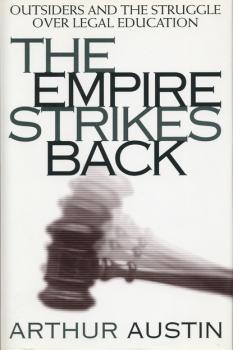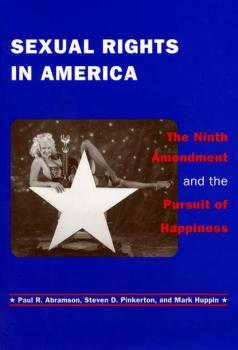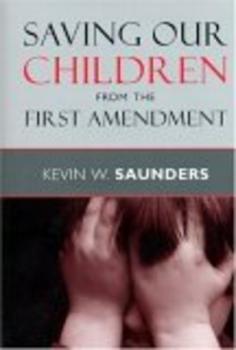ТОП просматриваемых книг сайта:
Юриспруденция, право
Различные книги в жанре Юриспруденция, право, доступные для чтения и скачиванияАннотация
The Passions of Law is the first anthology to treat the role that emotions play, don't play, and ought to play in the practice and conception of law and justice. Lying at the intersection of law, psychology, and philosophy, this emergent field of law scholarship raises some of the most profound and interesting questions at the heart of jurisprudence. For example, what role do emotions ranging from disgust to compassion play in the decision-making processes of judges, lawyers, juries, and clients? What emotions belong in which legal contexts? Is there a hierarchy of emotions, and, if so, through what sources do we identify it? To what extent are emotions subject to change or tutelage? How can we evaluate the role of emotion in such disparate contexts as death sentencing, laws about same sex marriage, hate crime legislation, punitive damages or shaming penalties? Consisting of original essays by leading scholars of law, theology, political science, and philosophy, The Passions of Law contributes to ongoing efforts to humanize law and reveals how this previously unacknowledged aspect of decision-making exerts a much greater impact on justice and the practice of law than most tend, or like, to think. Learn more about Susan Bandes
Информация о книге
Автор произведения Группа авторов
Жанр Юриспруденция, право
Серия Critical America
Аннотация
Few institutions have become as ferociously fought over in democratic politics as the courts. While political criticism of judges in this country goes back to its inception, today’s intensely ideological assault is nearly unprecedented.Spend any amount of time among the writings of contemporary right-wing critics of judicial power, and you are virtually assured of seeing repeated complaints about the “imperial judiciary.” American conservatives contend not only that judicial power has expanded dangerously in recent decades, but that liberal judges now willfully write their policy preferences into law. They raise alarms that American courts possess a degree of power incompatible with the functioning of a democratic polity. The Myth of the Imperial Judiciary explores the anti-judicial ideological trend of the American right, refuting these claims and taking a realistic look at the role of courts in our democracy to show that conservatives have a highly unrealistic conception of their power. Kozlowski first assesses the validity of the conservative view of the Founders’ intent, arguing that courts have played an assertive role in our politics since their establishment. He then considers contemporary judicial powers to show that conservatives have greatly overstated the extent to which the expansion of rights which has occurred has worked solely to the benefit of liberals.Kozlowski reveals the ways in which the claims of those on the right are often either unsupported or simply wrong. He concludes that American courts, far from imperiling our democracy or our moral fabric, stand as a bulwark against the abuse of legislative power, acting forcefully, as they have always done, to give meaning to constitutional promises.
Аннотация
Watch this show, buy this product, you can be a whole new you! Makeover television shows repeatedly promise self-renewal and the opportunity for reinvention, but what do we know about the people who watch them? As it turns out, surprisingly little. The Makeover is the first book to consider the rapid rise of makeover shows from the perspectives of their viewers. Katherine Sender argues that this genre of reality television continues a long history of self-improvement, shaped through contemporary media, technological, and economic contexts. Most people think that reality television viewers are ideological dupes and obliging consumers. Sender, however, finds that they have a much more nuanced and reflexive approach to the shows they watch. They are critical of the instruction, the consumer plugs, and the manipulative editing in the shows. At the same time, they buy into the shows’ imperative to construct a reflexive self: an inner self that can be seen as if from the outside, and must be explored and expressed to others. The Makeover intervenes in debates about both reality television and audience research, offering the concept of the reflexive self to move these debates forward.
Аннотация
Once dismissed as plodding and superfluous, legal scholarship is increasingly challenging the liberal white male establishment that currently dominates legal education and practice. The most significant development since the emergence of the casebook, at the turn of the century, this trend has unleashed a fierce political struggle. At stake is nothing less than the entire enterprise of law and education, and thus a powerful platform from which to shape society. The result, here vividly recounted by Arthur Austin, has been an uncompromising, take-no-prisoners fight for dominance. The challenge comes from Outsiders, a collection of feminists, critical race theorists, and critical legal studies scholars who rely on unconventional methods such as storytelling to give voice to the underrepresented. In the other, demographically larger camp resides the monolithic Empire, consisting of traditionalists who, having developed an effective form of scholarship, now circle the wagons against the outsider heathens. Neither partisan nor objective, Austin is both respectful and critical of each faction. The Empire, he believes, is imperious, closed-minded, and self-perpetuating; the Outsiders are too often paranoid, anti-pragmatic, and overly tolerant of fringe work. Is the new scholarship a vacuous, overpoliticized, soon-to-be-vanquished trend or the harbinger of an important new paradigm? Is reconciliation possible? Anyone with a vested interest in the answer to these questions, and in the future of law, cannot afford to miss Arthur Austin's invaluable volume. Arthur Austin is the Edgar A. Hahn Professor of Jurisprudence at Case Western Reserve University.
Информация о книге
Автор произведения Arthur D. Austin
Жанр Юриспруденция, право
Серия Critical America
Аннотация
America is the most punitive nation in the world, incarcerating more than 2.3 million people—or one in 136 of its residents. Against the backdrop of this unprecedented mass imprisonment, punishment permeates everyday life, carrying with it complex cultural meanings. In The Culture of Punishment , Michelle Brown goes beyond prison gates and into the routine and popular engagements of everyday life, showing that those of us most distanced from the practice of punishment tend to be particularly harsh in our judgments. The Culture of Punishment takes readers on a tour of the sites where culture and punishment meet—television shows, movies, prison tourism, and post 9/11 new war prisons—demonstrating that because incarceration affects people along distinct race and class lines, it is only a privileged group of citizens who are removed from the experience of incarceration. These penal spectators, who often sanction the infliction of pain from a distance, risk overlooking the reasons for democratic oversight of the project of punishment and, more broadly, justifications for the prohibition of pain.
Информация о книге
Автор произведения Michelle Brown
Жанр Юриспруденция, право
Серия Alternative Criminology
Аннотация
How sharing, linking, and liking have transformed the media and marketing industries Spreadable Media is a rare inside look at today’s ever-changing media landscape. The days of corporate control over media content and its distribution have been replaced by the age of what the digital media industries have called “user-generated content.” Spreadable Media maps these fundamental changes, and gives readers a comprehensive look into the rise of participatory culture, from internet memes to presidential tweets. The authors challenge our notions of what goes “viral” and how by examining factors such as the nature of audience engagement and the environment of participation, and by contrasting the concepts of “stickiness”—aggregating attention in centralized places—with “spreadability”—dispersing content widely through both formal and informal networks. The former has often been the measure of media success in the online world, but the latter describes the actual ways content travels through social media. The book explores the internal tensions businesses face as they adapt to this new, spreadable, communication reality and argues for the need to shift from “hearing” to “listening” in corporate culture. Now with a new afterword addressing changes in the media industry, audience participation, and political reporting, and drawing on modern examples from online activism campaigns, film, music, television, advertising, and social media—from both the US and around the world—the authors illustrate the contours of our current media environment. For all of us who actively create and share content, Spreadable Media provides a clear understanding of how people are spreading ideas and the implications these activities have for business, politics, and everyday life, both on- and offline.
Информация о книге
Автор произведения Henry Jenkins
Жанр Юриспруденция, право
Серия Postmillennial Pop
Аннотация
How Spanish-language radio has influenced American and Latino discourse on key current affairs issues such as citizenship and immigration. Winner, Book of the Year presented by the American Association of Hispanics in Higher Education [/b][b]Honorable Mention for the 2015 Latino Studies Best Book presented by the Latin American Studies Association Thelast two decades have produced continued Latino population growth, and markedshifts in both communications and immigration policy. Since the 1990s, Spanish-language radio has dethroned English-language radio stations in major citiesacross the United States, taking over the number one spot in Los Angeles,Houston, Miami, and New York City. Investigating the cultural and politicalhistory of U.S. Spanish-language broadcasts throughout the twentieth century, Soundsof Belonging reveals how these changes have helped Spanish-language radiosecure its dominance in the major U.S. radio markets. Bringing together theories on the immigration experience withsound and radio studies, Dolores Inés Casillas documentshow Latinos form listening relationships with Spanish-language radioprogramming. Using a vast array of sources, from print culture and industryjournals to sound archives of radio programming, she reflects on institutionalgrowth, the evolution of programming genres, and reception by the radioindustry and listeners to map the trajectory of Spanish-language radio, fromits grassroots origins to the current corporate-sponsored business it hasbecome. Casillas focuses on Latinos’ use of Spanish-language radio to helpnavigate their immigrant experiences with U.S. institutions, for example inbroadcasting discussions about immigration policies while providing anonymityfor a legally vulnerable listenership. Sounds of Belonging proposes thatdebates of citizenship are not always formal personal appeals but a collectiveexperience heard loudly through broadcast radio.
Аннотация
The Constitution of the United States guarantees all Americans certain rights, such as the freedoms of speech and religious expression. But what guarantees our sexual freedoms? Sexual Rights in America presents a bold and intriguing look at the constitutional basis of sexual rights in America. Resurrecting the «forgotten» Ninth Amendment, which guarantees those fundamental rights not protected elsewhere in the Constitution, Abramson and colleagues argue that the freedom to choose how, when, and with whom we express ourselves sexually is integral to our happiness. Their careful review of the historical record reveals the importance of the «pursuit of happiness» in the socio-moral philosophy underpinning the Constitution. Sexual freedoms, they assert, are cut from the same cloth as the other freedoms protected by the Bill of Rights, and therefore, should be covered by the Ninth Amendment. Using concrete examples such as prostitution and phone sex, Sexual Rights in America illustrates the scope and limitations of Ninth Amendment sexual rights.
Аннотация
In this fascinating examination of the intriguing but understudied period following the landmark Brown v. Board of Education decision, John Jackson examines the scientific case aimed at dismantling the legislation.Offering a trenchant assessment of the so-called scientific evidence, Jackson focuses on the 1959 formation of the International Society for the Advancement of Ethnology and Eugenics (IAAEE), whose expressed function was to objectively investigate racial differences and publicize their findings. Notable figures included Carleton Putnam, Wesley Critz George, and Carleton Coon. In an attempt to link race, eugenics and intelligence, they launched legal challenges to the Brown ruling, each chronicled here, that went to trial but ultimately failed. The history Jackson presents speaks volumes about the legacy of racism, as we can see similar arguments alive and well today in such books as The Bell Curve and in other debates on race, science, and intelligence. With meticulous research and a nuanced understanding of the complexities of race and law, Jackson tells a disturbing tale about race in America.
Информация о книге
Автор произведения John P. Jackson, Jr.
Жанр Юриспруденция, право
Серия Critical America
Аннотация
The First Amendment is vital to our political system, our cultural institutions, and our routine social interactions with others. In this provocative book, Kevin Saunders asserts that freedom of expression can be very harmful to our children, making it more likely that they will be the perpetrators or victims of violence, will grow up as racists, or will use alcohol or tobacco. Saving Our Children from the First Amendment examines both the value and cost of free expression in America, demonstrating how an unregulated flow of information can be detrimental to youth. While the great value of the First Amendment is found in its protection of our most important political freedoms, this is far more significant for adults, who can fully grasp and benefit from the freedom of expression, than for children. Constitutional prohibitions on distributing sexual materials to children, Saunders proposes, should be expanded to include violent, vulgar, or profane materials, as well as music that contains hate speech.Saunders offers an insightful meditation on the problem of protecting our children from the negative effects of freedom of expression without curtailing First Amendment rights for adults.
Информация о книге
Автор произведения Kevin W. Saunders
Жанр Юриспруденция, право
Серия Critical America










